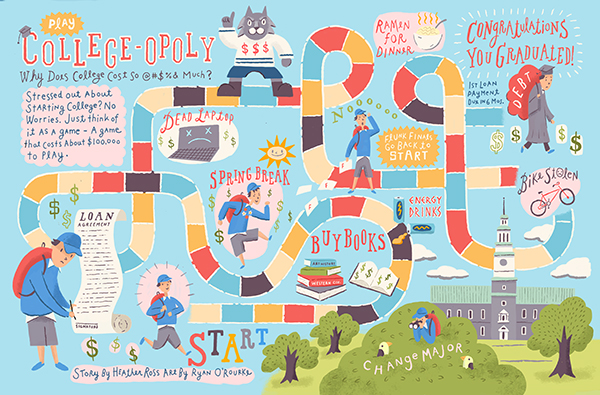The decline of state spending on public colleges has increased the overall cost on higher education leaving students with large amounts of student debt. In the US, the total amount of student debt is about $1.2 trillion, surpassing credit card debt. “This debt ultimately will outweigh most of the potential benefit you’re getting from the college education. “What you thought you were going to get in quality of life by going to that college, you’ve just undermined with the amount of debt you’re taking on,” (Jacobs, P. 2015). I think your return on investment for a college degree depends on the school and career field that you choose. Students have to pay attention to tuition costs and choose growing fields. There are affordable schools out there. It is quite alarming how expensive tuition has become. When I started my Bachelors the degree, the school I went to yearly cost was $18,000, now the cost is $26,000. The great thing about my experience was I received a small scholarship. The College I went to was a “small school of big dreams” as they say. I wanted to go to a big University but I had to make the wisest decision to ensure I wouldn’t be drowning in student debt upon graduation.
“Between 1992 and 2012, the average amount owed by a typical student loan borrower who graduated with a bachelor’s degree more than doubled to a total of nearly $27,000. Tuition continues to rise, putting college out of reach for the very families that need it most to join the middle class” (College Affordability and Completion). “Too many recent college graduates feel the weight of their student loan payments holding them back from fulfilling their full potential. And far too many prospective college students feel as though they are simply priced out of the education they need to set themselves up for future success” (College Affordability).

There are great benefits of obtaining a degree, higher education is the key to opportunity. College graduates earn more than those with a high school diploma and are likely to face unemployment at smaller rate than those without. “Today, three-quarters of the fastest-growing occupations require education and training beyond a high school diploma. By 2020, an estimated two-thirds of job openings will require post-secondary education or training” (College Affordability and Completion). This is why, people want to pursue an education but if you do not receive a return on an investment it is pointless. Many students obtain a degree but do not get that high paying job, and are left to pay back a ridiculous amount of student loans. Students who take on debt and never complete their degree are in even more turmoil. “A students’ ability to repay their loans depends more strongly on whether they graduate than on how much total debt they take on” (College Affordability and Completion).
Is College worth it, does the price of a college education defeat its purpose?

References:
College Affordability and Completion: Ensuring a Pathway to Opportunity. (n.d.). Retrieved April 12, 2018, from https://www.ed.gov/college
Jacobs, P. (2015). Mark Cuban: This is just the start of the college implosion. Business Insider.